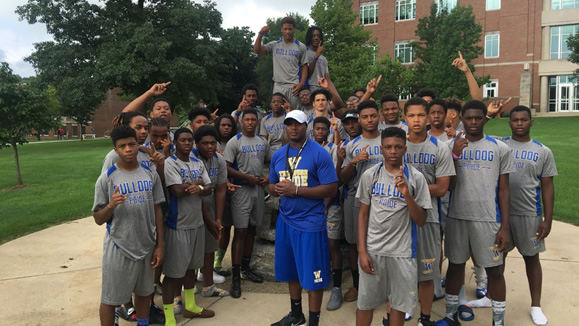Monte Robinson – Westinghouse Academy
“At the end of the day, if you’re passionate about character development, Coaching Boys Into Men is a great tool to start working with your guys.”
Westinghouse Academy 6-12 was the first Pittsburgh Public School to bring Coaching Boys Into Men (CBIM) to a varsity athletic team, thanks in large part to the enthusiasm of football coach and alum Monte Robinson. He’d been looking for a way to balance the messages that young athletes hear about behavior. “Athletics creates a ‘gloves-off’ environment,” Monte says. “Coaches encourage players to be aggressive on the field, but we don’t teach them how to turn it off.”
Monte says that the key to helping his players distinguish hyper-masculinity in sports from harmful aggression in their relationships is to give them an opportunity to talk about it, particularly in the context of cautionary tales about professional athletes in the news. “CBIM starts a dialogue about how to talk to and about women, about what is and isn’t appropriate, about how to interact with one another… It challenges players and coaches to have conversations that otherwise would probably not happen about situations and issues the players probably wouldn’t bring up themselves.”
These conversations have made the team better. “The players have a platform to express themselves now. They’re able to verbalize their thoughts about relationships and challenge each other in a healthy way. As coaches, we’re learning about our players and being more transparent with them about our own experiences.” That can be a challenge for the coaching staff. “Talking about old styles of thinking can feel like seeing yourself in the mirror,” he says. “The kids are smart. They’ll call you on it.”
For Monte’s athletes, it’s been worth the effort. Together, the team and coaches have created a culture of openness and trust. “The guys are more willing to bring up things that bother them in their relationships. I tell them I don’t necessarily have the answers. I ask them what they think. We want to hear from them.” He encourages other coaches to customize CBIM so it works for their program. “Bake it in to the off-season workouts, when you have more time, and don’t worry about repeating the material each season. The curriculum might not change, but the world and the kids will. A year later, they’ll perceive the same information differently.”

